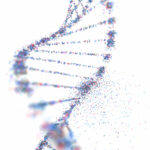CAR T-cell therapy (CAR T) has been making the rounds lately. Now we find its merits once again under discussion at the ASH 2024 annual meeting.
A recent study finds that Beta-hydroxybutyrate (BHB) seems to increase the effectiveness of immunotherapy in cancer treatments. BHB is an acid that the body produces when it burns fat for energy rather than blood sugar.
According to the study, BHB brought about improvements in response to CAR T in humans and mice. The team observed that patients with higher levels of BHB have a better response to CAR T.
Puneeth Guruprasad, a co-lead researcher and medical student at the Pennsylvania University’s Perelman School, explained to Medical Express that CAR T is a cancer treatment whereby a patient’s immune cells are removed and altered genetically in the lab. They are then returned to the body to kill the patient’s cancer.
Shan Liu is a co-lead Pennsylvania University postdoctoral fellow who explained in a separate news release that blood cancer patients numbering in the thousands have been successfully treated with CAR T.
However, he explained, it has not helped everyone.
About the Keto Diet
Before discussing the diet, the researchers would like to emphasize that this report is preliminary, and they are not suggesting any specific supplements or dietary recommendations until they have substantial clinical evidence.
The Keto Diet emphasizes eliminating almost all carbohydrate-heavy foods and to avoid protein and fats. In this regard, energy is the result of burning fat rather than sugar.
The keto diet’s potential was initially tested using lab mice. The researchers observed that there was an improvement in CAR T’s ability to treat lymphoma disease in rodents.
In addition, the researchers discovered that the higher BRB levels were directly related to the improved effectiveness of CAR T therapy.
The next step was to feed BHB supplements to the mice and compare the results to a normal diet. The team discovered that the supplements improved the effect of CAR T to the point of killing the cancer entirely in most of the lab mice.
Blood samples were taken from people who had been treated recently with CAR T showing that immune cells performed better when supported by higher BHB levels.
The researchers are moving to the next level by launching a trial with the goal of confirming that supplementing with BHB will improve the efficacy of CAR T treatment.
The enrollment will begin shortly, admitting patients with large B cell lymphoma that has been resistant or returns after remission.
Maayan Levy is an assistant microbiology professor at the University. The team is optimistic that the clinical trial will be successful. Professor Levy refers to the low toxicity and relatively low cost of the treatment as well as the potential to combine dietary interventions and other traditional approaches that could improve the anti-cancer outcome.
Dr. Marco Ruella, senior researcher and scientific director of the lymphoma program at Penn Medicine, was also enthusiastic with respect to the process of moving to clinical trial.
Dr. Ruella again emphasized that the team is not yet making recommendations until, based on the new study, the researchers have definite clinical evidence.
cancer cancer treatment CAR T-cell therapy
Last modified: January 16, 2025











